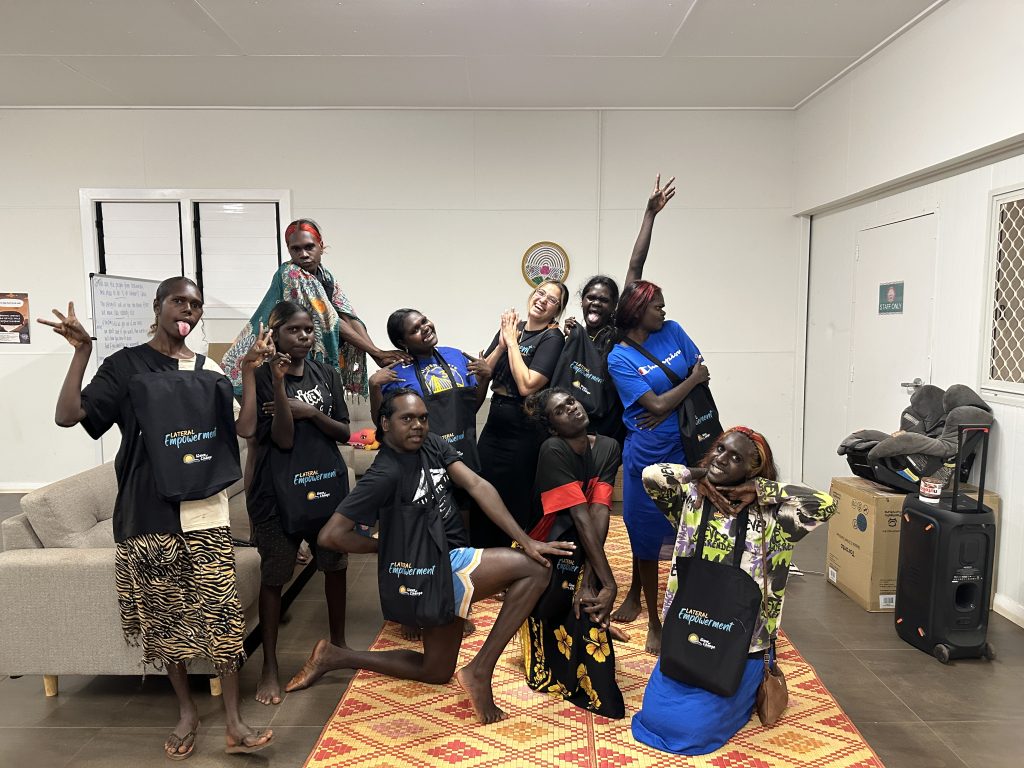INDIGENOUS BUSINESS AUSTRALIA




Home / News & Media /
In the heart of the Northern Territory, a powerful movement has been started by social enterprise Wave of Change Consultancy Pty Ltd. Woolwonga and Kukatj woman, raised on Larrakia and Yolngu land, Lateesha Jeffrey, stands at the forefront, with firsthand experience and knowledge about the devastating impact of lateral violence on Aboriginal and Torres Strait Islander people and communities. But instead of succumbing to despair, she chose to create a beacon of hope: the ‘Lateral Empowerment’ program.

Together with staunch First Nations women Jaylene Chevalier and Rhiannon Busch, the program has been designed and delivered by Indigenous women, for Indigenous women. Championed by founder Lateesha Jeffrey, Wave of Change Consultancy rolled out the ‘Lateral Empowerment’ program – designed to dismantle lateral violence with the goal to give Aboriginal and Torres Strait Islander women and girls reflective tools to cut through the dark sides of lateral violence and inspire and uplift one another. From Tennant Creek, and Groote Eylandt to Galiwin’ku with many other Territory communities in between, Lateesha and her team were able to successfully work with 187 women and girls from 14 different remote and very remote locations.
The lateral violence that is explored through the program relates to the harmful behaviours that Aboriginal and Torres Strait Islander people are both subjected to and/ or have perpetuated. Lateral violence has devastating effects that can cause the deepening of intergenerational trauma, with the behaviours occurring within families, in schools, organisations and communities at large.
With her experience in leadership on the sports field as well as soft skills developed working within education and government, Lateesha was well-positioned to deliver a transformative program with a unique approach.
“Our emotionally and trauma-informed practices encourage participants to not only understand their experiences of lateral violence but also identify where they may have perpetuated these behaviours in their own life,” Lateesha says. “Participants are provided the safe space to practice reflection, whilst also empowering responsibility and accountability towards changing the negative narrative, instilling principles of lateral empowerment for future generations.”
The program delivery has underpinned Wave of Change’s theory of change, being that the reflective nature of the program enables participants to be accountable for their actions and identify an opportunity to promote a strength-based approach through ‘lateral empowerment’.
“The power of this program,” Lateesha says, “is that by capturing what makes the participants feel safe to connect, share and learn, we created a ripple effect because the women understood how to support and uplift others within their community to eventually stop lateral violence altogether.”
The success of the program is evident as 95.6% of participants completed the workshops with a greater understanding of lateral violence and the impacts.
A participant remarked that the tears during the program showed the authenticity of how lateral violence is happening for these ladies in their communities each day and how the chains of silence have been broken: “The empowerment to these ladies to find their voice and speak up through the program demonstrated the strength gathered through sharing their stories with everyone”, the participant stated.
The Lateral Empowerment Program continues to be delivered within the Northern Territory at a fee for service (due to lack of ongoing funding), with hopes to expand interstate to continue the powerful movement with First Nations women and girls.
Wave of Change were a Social Enterprise partner with IBA in 2003.